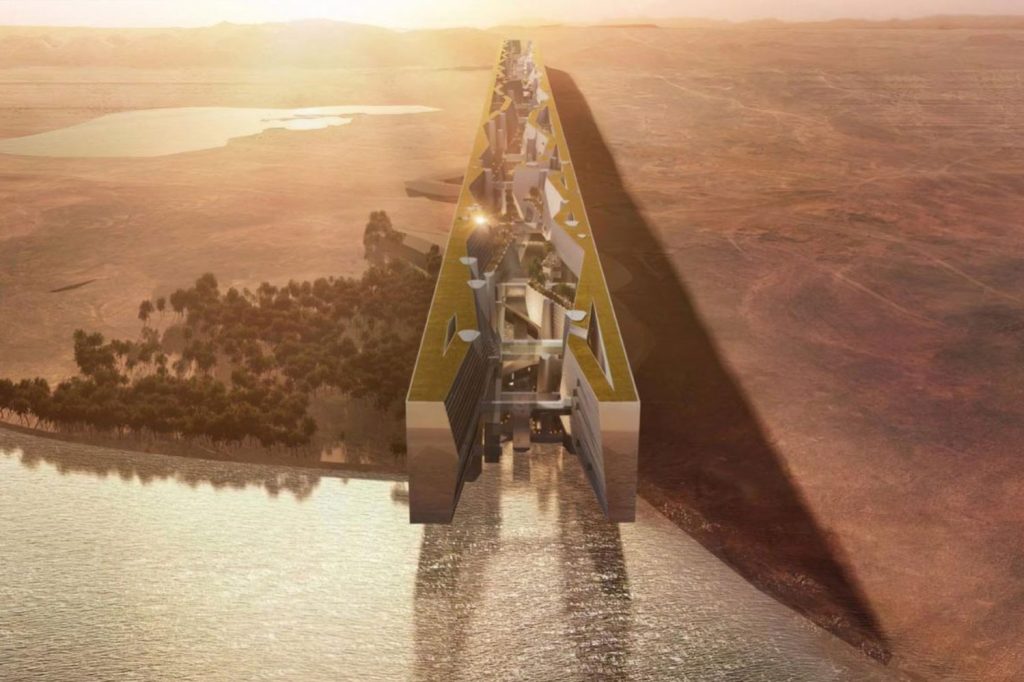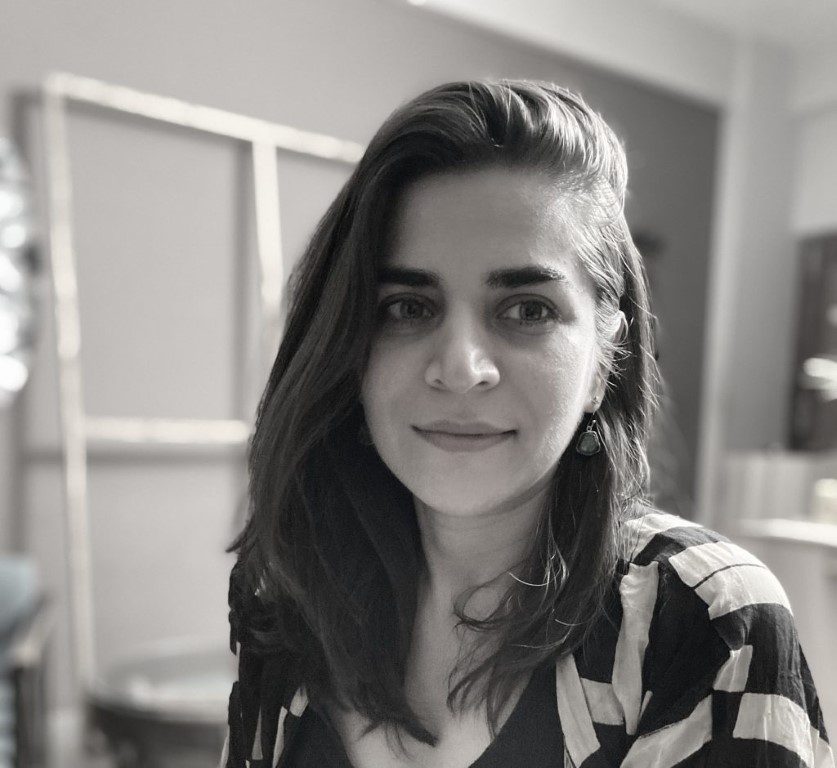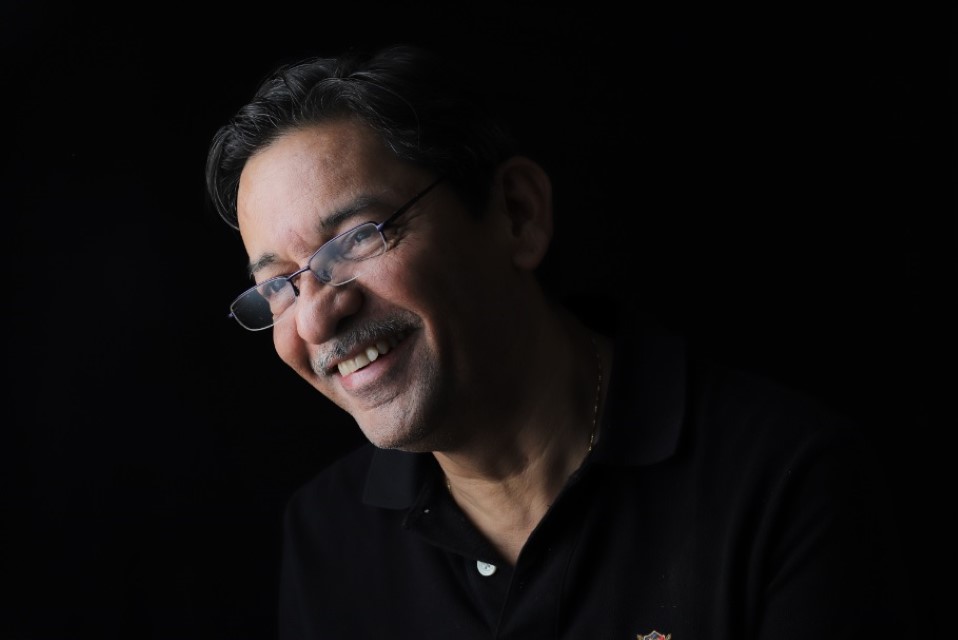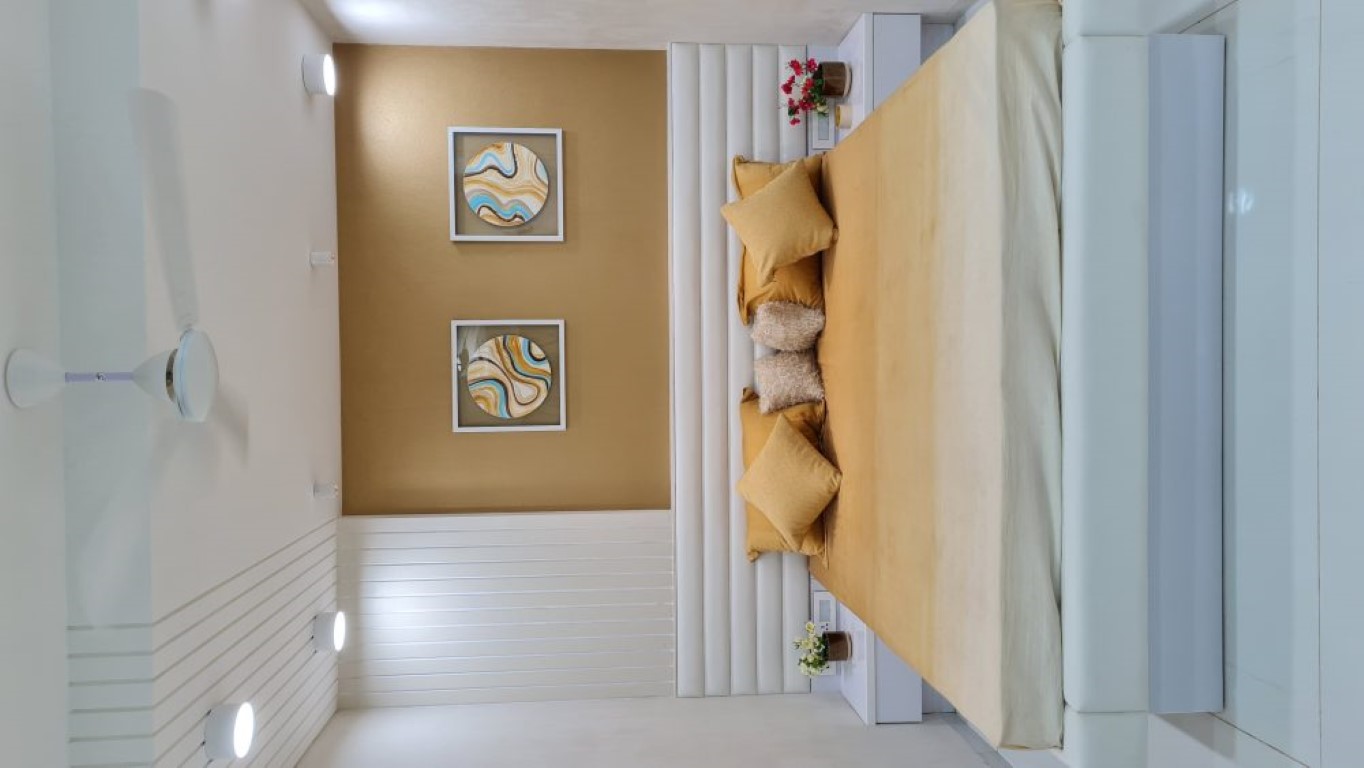Introduction
Redefining the future of urban living is the goal of Neom, the ground-breaking urban initiative that Saudi Crown Prince Mohammed bin Salman unveiled in 2017. Neom, which would take up 26,500 square kilometres in the northwest Tabuk Province, has ambitions to build a floating industrial complex, a global commerce hub, opulent vacation destinations, and a distinctive linear city that runs entirely on renewable energy. Nevertheless, despite its lofty objectives, Neom has encountered scepticism, disputes, and considerable delays, prompting concerns about the megaproject’s viability and moral implications.
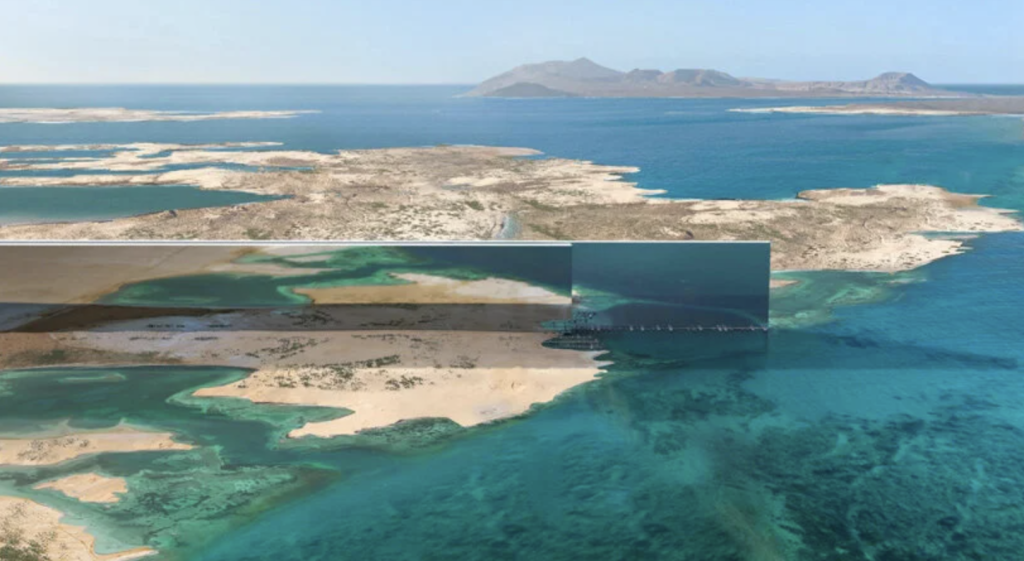
Saudi Arabia’s ambitious megacity project, NEOM, keeps pushing the envelope in terms of sustainability and creativity. Recent announcements reveal intriguing new developments, such as the opening of NEOM Airlines, partnerships with international companies, opulent hotels, and ground-breaking projects like the NEOM Food Company, Topian, Epicon Towers, Siranna Retreat, and Leyja ecotourism destination. These highlights demonstrate NEOM’s dedication to creating an urban experience that is sustainable, connected, and futuristic.
NEOM Airlines
In a strategic move, NEOM unveiled plans to launch its own airline, set to be fully operational by the end of 2024. The airline aims to provide a seamless travel experience for tourists, residents, and business partners. Initial enhancements to existing equipment and technology will be followed by investments in next-generation electric, hydrogen, or supersonic aircraft from 2026. NEOM Airlines is set to operate from NEOM Bay Airport, connecting domestic flights within Saudi Arabia and international routes to London and Dubai.
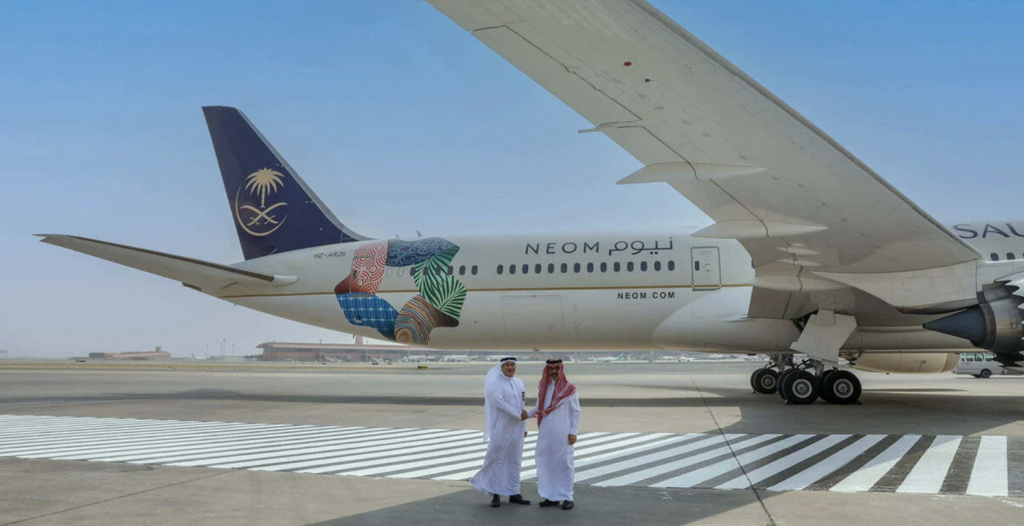
Green Collaboration with Van Der Hoeven
NEOM’s commitment to sustainable practices extends to agriculture with a partnership with Dutch greenhouse company Van Der Hoeven. The initiative seeks to introduce flourishing gardens in the arid deserts of Saudi Arabia. Dutch horticultural experts will design, build, and operate test facilities for urban farming, contributing to NEOM’s goal of becoming a self-sustaining oasis.
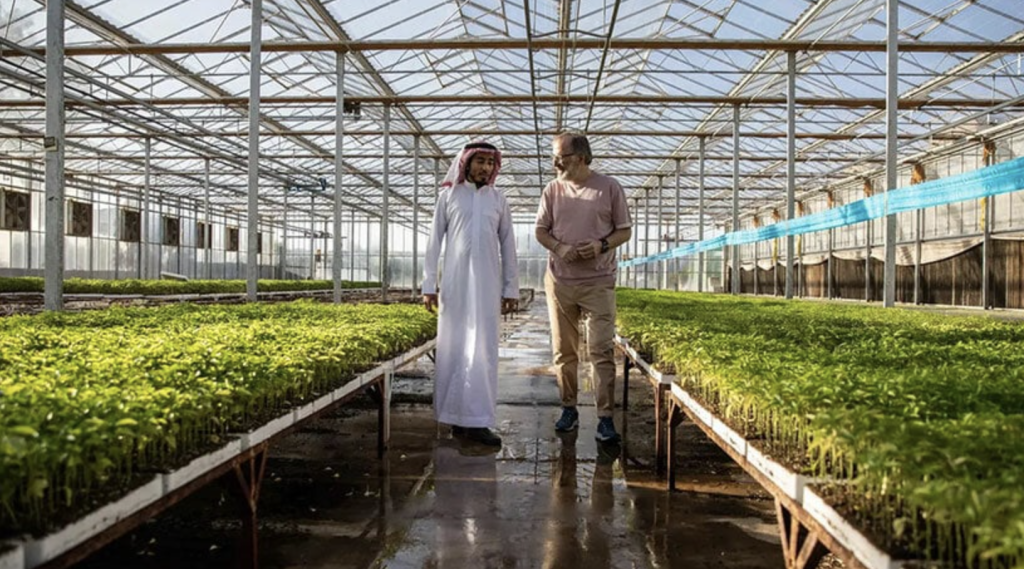
Marriott’s Luxury Hotels in NEOM
NEOM’s skyline is set to feature two luxurious additions from Marriott International – Saudi Arabia’s first W Hotel and a JW Marriott property. The hotels, located in the futuristic ski resort of Trojena, are expected to cater to global conferences, exhibitions, high-profile events, and visitors exploring the snowy mountains. The completion of Trojena aligns with the Asian Winter Games scheduled for 2029.
Leyja Ecotourism Destination
In line with Saudi Vision 2030’s focus on sustainable tourism, NEOM introduces Leyja, a new ecotourism destination. Designed by renowned architects, Leyja will blend innovative ecological design with construction methods that harmonize with the environment. With 95% of its expansive terrain designated as a nature reserve, Leyja will offer refined experiences, including fine dining, wellness facilities, and outdoor activities, contributing to NEOM’s commitment to a flourishing and sustainable future.
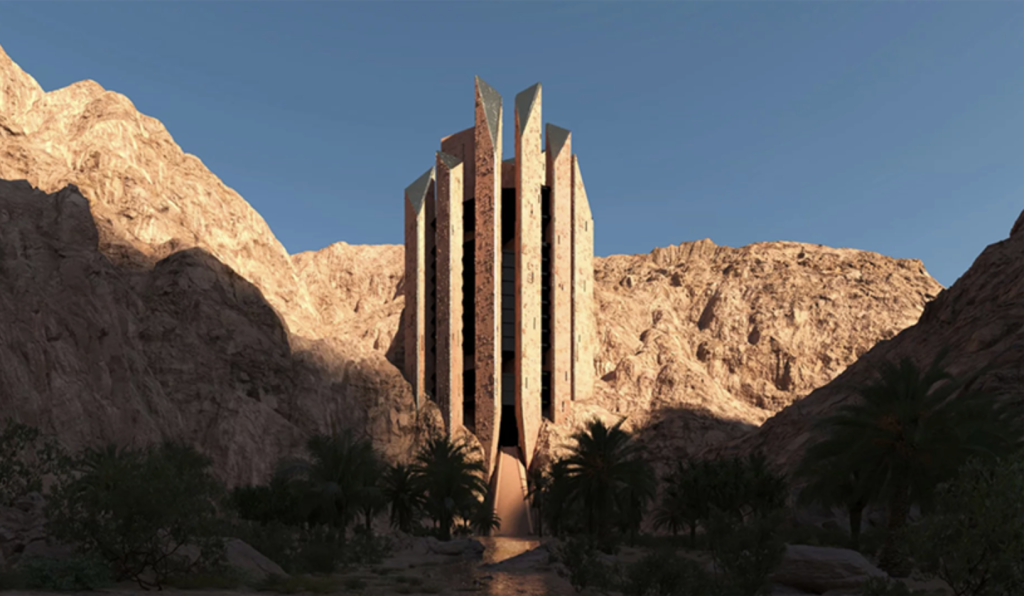
Epicon Towers – A Mirage in the Desert
NEOM’s skyline will feature the ultra-futuristic Epicon Towers, designed to resemble a glistening mirage on the horizon. Nestled in the Gulf of Aqaba, these avant-garde towers will house an exclusive hotel, resort, and beachfront residential villas. The sleek and futuristic architecture, coupled with vertical space utilisation, reflects NEOM’s vision as a gateway to the future and a retreat from reality.
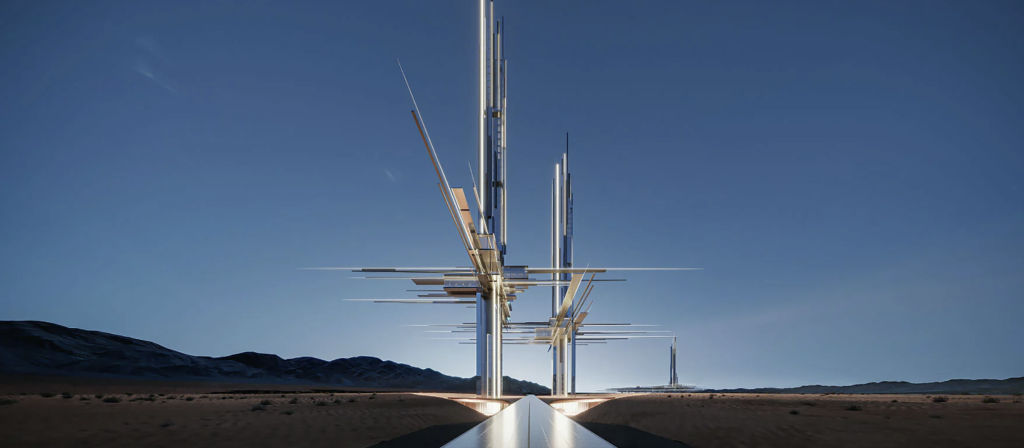
Siranna – Hexagonal-Pillar Retreat
NEOM’s Siranna emerges as an ultra-luxurious tourism escape along the Gulf of Aqaba coastline. With a hexagonal-pillar structure housing a hotel and exclusive residences, Siranna seamlessly blends into the rugged coastal terrain. The tiered design offers uninterrupted views of the Red Sea, paying homage to regional heritage and creating a unique intersection between nature and architecture.
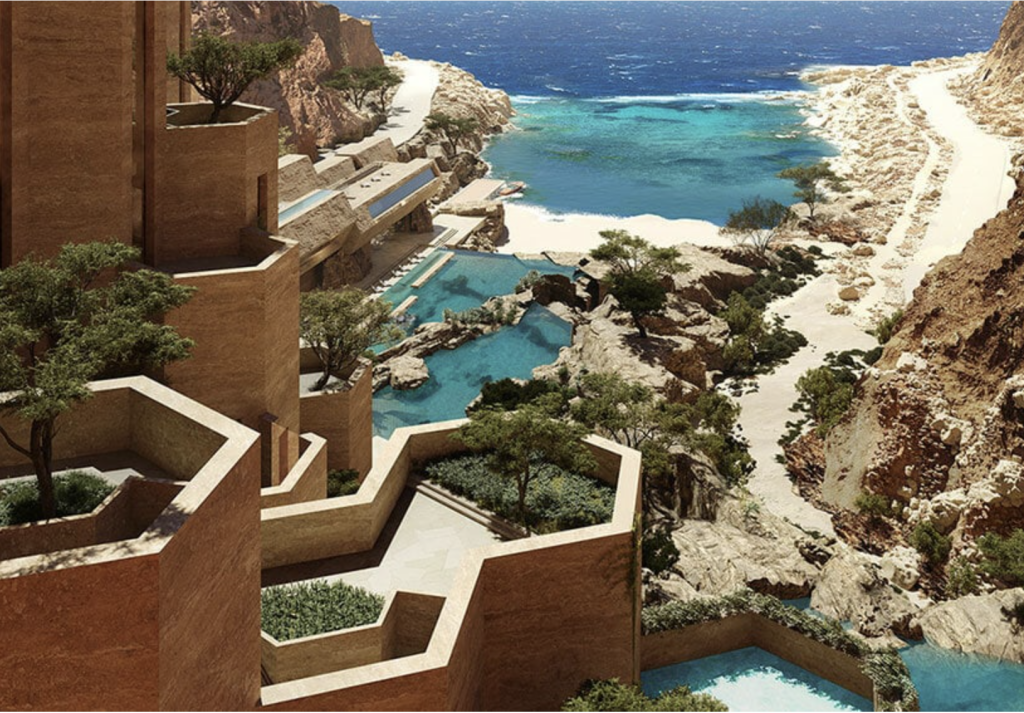
Topian – NEOM’s Food Company
NEOM takes a revolutionary step in addressing global food challenges with the launch of Topian, the NEOM Food Company. Built upon five core verticals, including climate-proof agriculture and sustainable food supply, Topian aims to transform food production, distribution, and consumption. The ‘Future to Table’ initiative underscores Topian’s commitment to introducing innovative solutions that align with ESG principles, addressing issues like population growth, changing consumption patterns, climate change, and resource depletion.
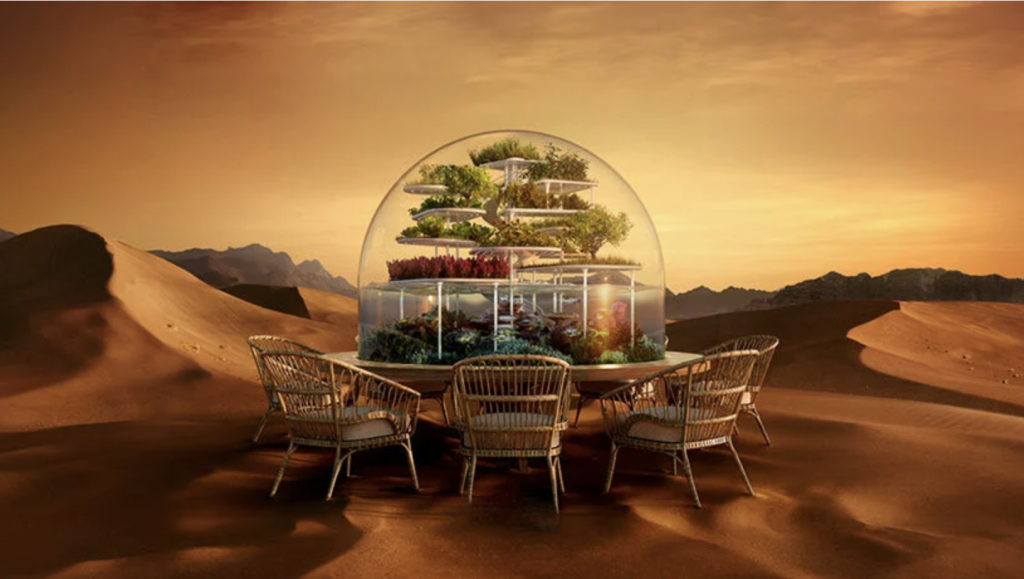
Historical Context
The idea for Neom emerged from Saudi Vision 2030, a transformative plan aimed at reducing the country’s reliance on oil, diversifying its economy, and developing public-service sectors. Crown Prince Mohammed bin Salman announced the project in 2017, envisioning a city with its own governance framework, tax laws, and judicial system. Plans included the integration of advanced technologies like robots for various functions and a commitment to renewable energy sources.
Challenges and Delays
Despite the grand vision, Neom faced setbacks, falling behind its initial schedule. By July 2022, only two buildings had been constructed, and much of the vast project area remained untouched desert. With an estimated cost exceeding $500 billion, the megaproject aimed to secure funding through the establishment of a closed joint-stock company named Neom, wholly owned by the Public Investment Fund.
Planned Regions
The Line, a car-free linear city, became a focal point of Neom’s plans, evolving in design to a continuous structure with an all-glass mirror exterior. Neom Bay, the first phase of development, and the Neom Bay Airport were also part of the initial vision. Oxagon, a floating industrial complex focusing on modern manufacturing and research, and Trojena, the first major skiing destination in the Arabian Peninsula, added diverse elements to the megaproject.
Sindalah, an 1,100,000-cubic-yard luxury resort complex, and agricultural initiatives marked further expansions, emphasising genetic engineering for crop cultivation. Enowa, a subsidiary, was established to provide renewable energy, green hydrogen, and zero waste desalination.
International Relations:
Neom forged partnerships with entities such as Mercedes-EQ Formula E Team and McLaren Racing’s electric motorsport division. It became the title sponsor for McLaren’s Formula E and Extreme E divisions, showcasing the project’s commitment to sustainable practices. Collaboration with Air Products & Chemicals, Inc. for a green hydrogen plant and a global sponsorship agreement with the Asian Football Confederation highlighted Neom’s international reach.
Controversiess
The megaproject faced significant controversies, notably related to forced evictions, executions, and allegations of an abusive work culture. The Howeitat tribe, native to the area, protested against forced expulsion, leading to arrests and, in some cases, death sentences. Neom’s hosting of the 2029 Asian Winter Games drew criticism for its environmental impact, while reports of an abusive work culture and surveillance concerns added to the project’s challenges.
Conclusion
Neom is a futuristic megaproject that showcases Saudi Arabia’s audacious plans for economic diversification and urban development. Although the project is an example of creativity and sustainability, it is beset by issues and problems, such as moral dilemmas, hold-ups, and opposition from nearby towns. With openness, moral leadership, and striking a balance between advancement and human rights at the core of its development, Neom’s future is still up in the air.
Feature image courtesy: parametric-architecture
Clay Carvings: Exploring the Terracotta Temples of Bishnupur, West Bengal

